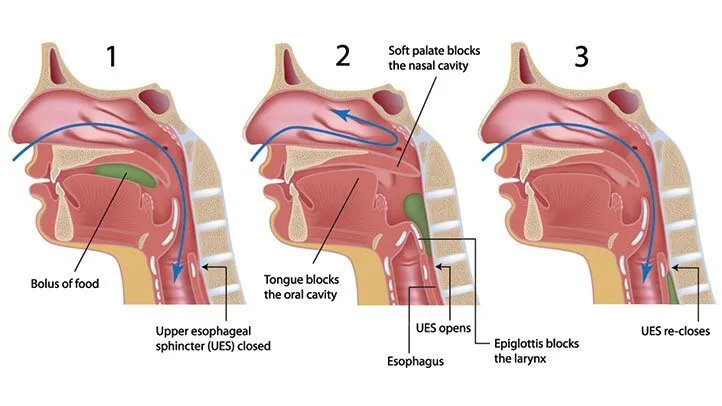Understanding Coughs: Types, Causes, and Symptoms
Before we dive into the remedies, it's essential to understand the different types of coughs and their underlying causes. Coughs can be dry, wet, persistent, or intermittent, and they can arise from various conditions, including colds, flu, allergies, asthma, or even acid reflux.
Common symptoms of a cough can include a tickling sensation in the throat, chest discomfort, hoarseness, or even difficulty breathing. By identifying the type of cough and its potential cause, you can tailor your approach for more effective relief.
Dry vs. Wet Coughs
Dry coughs are often associated with upper respiratory infections, allergies, or irritants like smoke or pollution. They're characterized by a tickling or scratchy sensation in the throat that produces little to no phlegm. Wet coughs, on the other hand, are typically caused by conditions that produce excess mucus, such as bronchitis, pneumonia, or sinus infections. These coughs are often productive, meaning they expel phlegm or mucus.
Daytime Cough Relief Strategies
Over-the-Counter Medications
When it comes to managing coughs during the day, over-the-counter (OTC) medications can be a helpful ally. Cough suppressants, such as dextromethorphan, can help reduce the urge to cough by acting on the cough reflex in the brain. Expectorants, like guaifenesin, can thin out mucus, making it easier to cough up and clear your airways.
It's essential to follow the dosage instructions carefully and consult with a healthcare professional if you have any underlying conditions or are taking other medications.
Stay Hydrated
Keeping your throat lubricated can go a long way in easing cough discomfort. Drink plenty of fluids, such as water, herbal teas, or warm broths, to help thin out mucus and soothe irritated airways. Avoid caffeinated or alcoholic beverages, as they can dry out the throat and exacerbate coughing.
Use Throat Lozenges and Sprays
Throat lozenges and sprays can provide temporary relief by coating and lubricating the throat, reducing irritation and discomfort. Look for products containing ingredients like menthol, honey, or demulcents (substances that form a protective film on the throat lining) to help soothe and numb the throat.
Nighttime Cough Relief Strategies
Humidify the Air
Dry air can aggravate coughs, especially during the night when the body is trying to rest and recover. Consider using a humidifier in your bedroom to add moisture to the air, which can help thin out mucus and ease irritated airways. Avoid using hot mist, as it can promote the growth of bacteria and mold.
Try Honey and Herbal Remedies
Honey has been used for centuries as a natural remedy for coughs, thanks to its anti-inflammatory and antibacterial properties. Taking a spoonful of honey before bed can help coat and soothe the throat, reducing cough irritation. For added benefit, try mixing honey with lemon, ginger, or other herbs known for their cough-relieving properties.
Elevate Your Head
Sleeping with your head slightly elevated can help prevent mucus from pooling in the back of your throat, reducing the likelihood of nighttime coughing fits. Use extra pillows or adjust your bed frame to elevate the head of the bed by a few inches.
Consider Cough Syrups
If your cough persists at night, you may find relief with an over-the-counter cough syrup. Look for formulas that contain dextromethorphan, a cough suppressant, or guaifenesin, an expectorant, to help calm coughing and promote restful sleep.
Natural and Home Remedies
Saltwater Gargle
Gargling with warm saltwater can provide temporary relief by reducing inflammation and loosening mucus. Dissolve a teaspoon of salt in a glass of warm water and gargle for 30 seconds to a minute before spitting it out.
Ginger and Turmeric
Both ginger and turmeric are known for their anti-inflammatory properties, making them excellent additions to your cough-fighting arsenal. Try sipping on warm ginger tea or adding fresh grated turmeric to soups or stews to help ease throat irritation and promote healing.
Peppermint and Eucalyptus
The menthol found in peppermint and eucalyptus can provide a cooling sensation to the throat and lungs, helping to open up airways and reduce cough severity. Try using essential oils in a diffuser, inhaling the vapors directly from the bottle, or adding a few drops to boiling water and breathing in the steam.
When to Seek Medical Attention
While most coughs can be managed with home remedies and over-the-counter medications, it's essential to recognize when professional medical attention is needed. If your cough persists for more than two weeks, is accompanied by high fever, shortness of breath, or produces discolored or bloody mucus, seek medical advice as these could be signs of a more serious underlying condition.
By incorporating these effective strategies and remedies into your routine, you can kick that pesky cough to the curb and reclaim your comfort and wellbeing. Remember, a combination of approaches tailored to your specific needs is often the most effective way to find relief, both during the day and at night.
FAQs
What are the different types of coughs?
Coughs can be classified as dry or wet. Dry coughs are characterized by a tickling or scratchy sensation in the throat that produces little to no phlegm, while wet coughs are typically productive, meaning they expel phlegm or mucus.
How can over-the-counter medications help with cough relief?
Over-the-counter (OTC) medications can be helpful for managing coughs. Cough suppressants, like dextromethorphan, can help reduce the urge to cough by acting on the cough reflex in the brain. Expectorants, such as guaifenesin, can thin out mucus, making it easier to cough up and clear your airways.
What natural remedies can help soothe a cough?
Several natural remedies can provide relief for coughs. Honey has anti-inflammatory and antibacterial properties that can coat and soothe the throat. Ginger and turmeric are known for their anti-inflammatory properties, while peppermint and eucalyptus can provide a cooling sensation to the throat and lungs, helping to open up airways and reduce cough severity.
How can I get relief from a nighttime cough?
To find relief from a nighttime cough, consider using a humidifier to add moisture to the air, which can help thin out mucus and ease irritated airways. Elevate your head while sleeping to prevent mucus from pooling in the back of your throat. Over-the-counter cough syrups containing dextromethorphan or guaifenesin can also help calm coughing and promote restful sleep.
When should I seek medical attention for a cough?
Seek medical advice if your cough persists for more than two weeks, is accompanied by high fever, shortness of breath, or produces discolored or bloody mucus, as these could be signs of a more serious underlying condition.
Disclaimer: This article is for informational purposes only and does not constitute medical advice. Always consult with a healthcare professional before starting any new treatment regimen.
Related Coverage
Learn about the common causes of sore throat and ear pain occurring together, how to differentiate between viral and bacterial infections, when to see a doctor, and ways to treat and prevent recurrence....
Lower back pain flu? Learn why the flu can cause back aches, red‑flag signs to watch, and simple home remedies for quick relief....
Learn whether you can safely take Advil and Dayquil simultaneously. Understand risks like organ damage and high blood pressure and follow best practices on dosing and timing....
From first signs through recovery, learn what to expect each day of a typical cold. Get tips to ease sore throats, congestion, coughs plus advice on complications....
Can you take NyQuil and ibuprofen together? While mixing some NyQuil formulations with ibuprofen is considered safe, doubling up on acetaminophen by combining certain NyQuil products with ibuprofen can risk liver damage....
Discover how using Young Living essential oils like eucalyptus, peppermint and lavender aromatically and topically can help provide natural relief for coughs....
Wondering whether to use Mucinex or DayQuil for cold, flu and cough symptoms? Compare the key differences in active ingredients, forms, symptom relief abilities, safety, and best products....
Frigid winds and air can provoke painful, aching ear discomfort when working out in winter weather. Learn what causes sore ears post-exercise in the cold and how to prevent future earaches....
Mucus plays a protective role, and swallowing it is harmless as it gets broken down. But excess mucus or changes in color may indicate lung infections....
Learn about common and serious Relenza side effects so you can make informed decisions when treating or preventing the flu....








